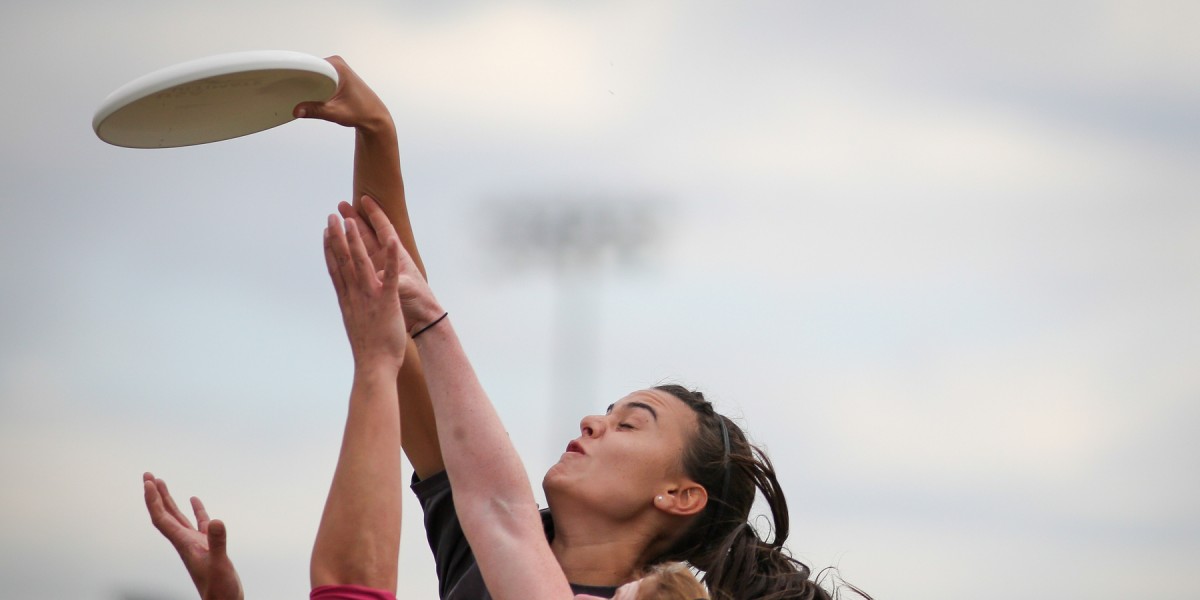 Christina Schmidt - UltiPhotos.com
Christina Schmidt - UltiPhotos.com
There are two thoughts that constantly run through my mind while I attend Fury tryouts: play my hardest and be a better teammate. The first one isn’t difficult to understand, although sometimes difficult to execute. The second one is both difficult to understand and execute. What makes me a better teammate? How do I help my team perform at its best? I started thinking about who I knew most embodied these characteristics and realized that each of these players deserved this title despite being very different teammates: one was The Leader, one The Humbler, and one The Challenger.
I first met The Leader during a pickup game the day before my first college practice. She sat down next to me while we cleated up, introduced herself, and immediately started chatting about classes, majors, and of course ultimate. Over the course of the next year, The Leader became my captain, mentor, and teammate. She transformed a women’s team that had never won a game in its history into a team that qualified for College Regionals that spring. She did this by giving it her all during every drill, every practice, every point, and every game. There was never a time I turned around and saw her playing lazily. Because of this dedication and drive, I wanted to work hard for her. I wanted to play better because of her. Everyone on the team recognized this and stopped skipping practices, chatting during warm ups, and playing lazy defense. It was hard work, but we did it for her. She made our team better, and not through intimidation, coercion, or force. She did it by setting a high standard and adhering to that standard each time she stepped out onto the field. She was a better teammate because she showed me, by using herself as an example, how hard you have to work to succeed in this game.
I first met The Humbler at a bar one evening during his club team’s fundraiser. He sat outside, stroking his beard, and mumbled a quiet hello. He was certainly intimidating, not only because of his giant stature, but because our small community thought of him as one of the best players in ultimate. He could jump higher than anyone, making huge plays in the endzone and was leading his team to Nationals year after year. But in the time I played alongside him, it wasn’t his great athleticism that I found to be his best asset: it was his humbleness. He never thought he was better or more deserving than anyone else and he always listened to what his teammates had to say. He knew his strengths, but also his limitations. He never believed he should be the designated hero who would make all the plays and score all the points, but he did believe that anyone on the team had the potential to ignite the fire that would drive our team to victory. He radiated strength through his silence, and would shake off constant admiration from other ultimate players as merely a reflection of his fellow teammates’ hard work and skills. He was a better teammate because he showed me that while it’s important to know my strengths, it’s also important know that I can always improve.
I don’t remember the very first time I met The Challenger. The first vivid memory I have of her was during a pre-tournament dinner at our captain’s house. She mixed every dessert possible into one bowl, making a brownish, soupy mess, while we discussed our mutual love of cereal and ultimate. Over the next few years, she quickly developed into a strong, aggressive handler, and our coaches or captains usually pitted us against one another at practices. As close as we were, these practices were never friendly. We each wanted to beat the other, and as a result, constantly tested one another’s physical and mental limits. It was hard, we got angry, and occasionally displayed our emotions a little too overtly. But as much as those practice were frustrating, she made me a better player. She forced me to run harder, fight for every disc, and make smarter decisions. She tested me, knowing it would help me find my weaknesses. She pushed me, knowing it would help build strength against our opponents. She was a better teammate because she challenged me to play at my best, and would always put me in my place if I didn’t.
We can all be better teammates in so many different ways: by leading us, humbling us, or challenging us. Sometimes that means taking charge, knowing your limits, or fighting back. But what is most important is that no matter what type of teammate we are, we always strive to become better.









Comments Policy: At Skyd, we value all legitimate contributions to the discussion of ultimate. However, please ensure your input is respectful. Hateful, slanderous, or disrespectful comments will be deleted. For grammatical, factual, and typographic errors, instead of leaving a comment, please e-mail our editors directly at editors [at] skydmagazine.com.